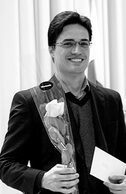| Research Council for Biosciences, Health and the Environment funds new Academy Research Fellows – emphasis on high quality and potential for scientific renewal The Academy of Finland’s Research Council for Biosciences, Health and the Environment today decided to fund 24 new posts as Academy Research Fellow. In addition to the high scientific quality of the application and the applicant’s competence, the Research Council also focused on career advancement and the potential for scientific renewal. The aim of Academy Research Fellow funding is to provide promising researchers with wide and versatile opportunities for independent research, to support them in establishing their own research team and to enable them to advance research in their field. Academy Research Fellows are expected to have effective national or international networks. They are also encouraged to engage in international collaboration. |
The Research Council funded several scientifically excellent researchers. Here are a few examples:
Rogerio de Figuereido (pic) from the University of Turku aims to develop more effective immunotherapy for the treatment of melanoma. In the advanced stages of the disease, melanoma cells spread from the primary site via the bloodstream to distant organs. At that stage, surgery, radiotherapy and chemotherapy have become less effective options. Immunotherapy boosts the body’s natural defences to eliminate the cancer cells, but many melanoma patients develop mechanisms of resistance to this therapy. Melanoma cells may produce a factor called MIF (macrophage migration inhibitory factor), which turns off the body’s natural defences, impairing the effectiveness of immunotherapy. The aim of de Figuereido’s project is to validate MIF as a tool to identify patients that can respond to immunotherapy. For those that will not respond, the idea is to develop strategies that neutralise MIF to restore the body’s ability to kill cancer cells, unleashing the full power of immunotherapy for an increasing number of patients.
List of funded researchers



